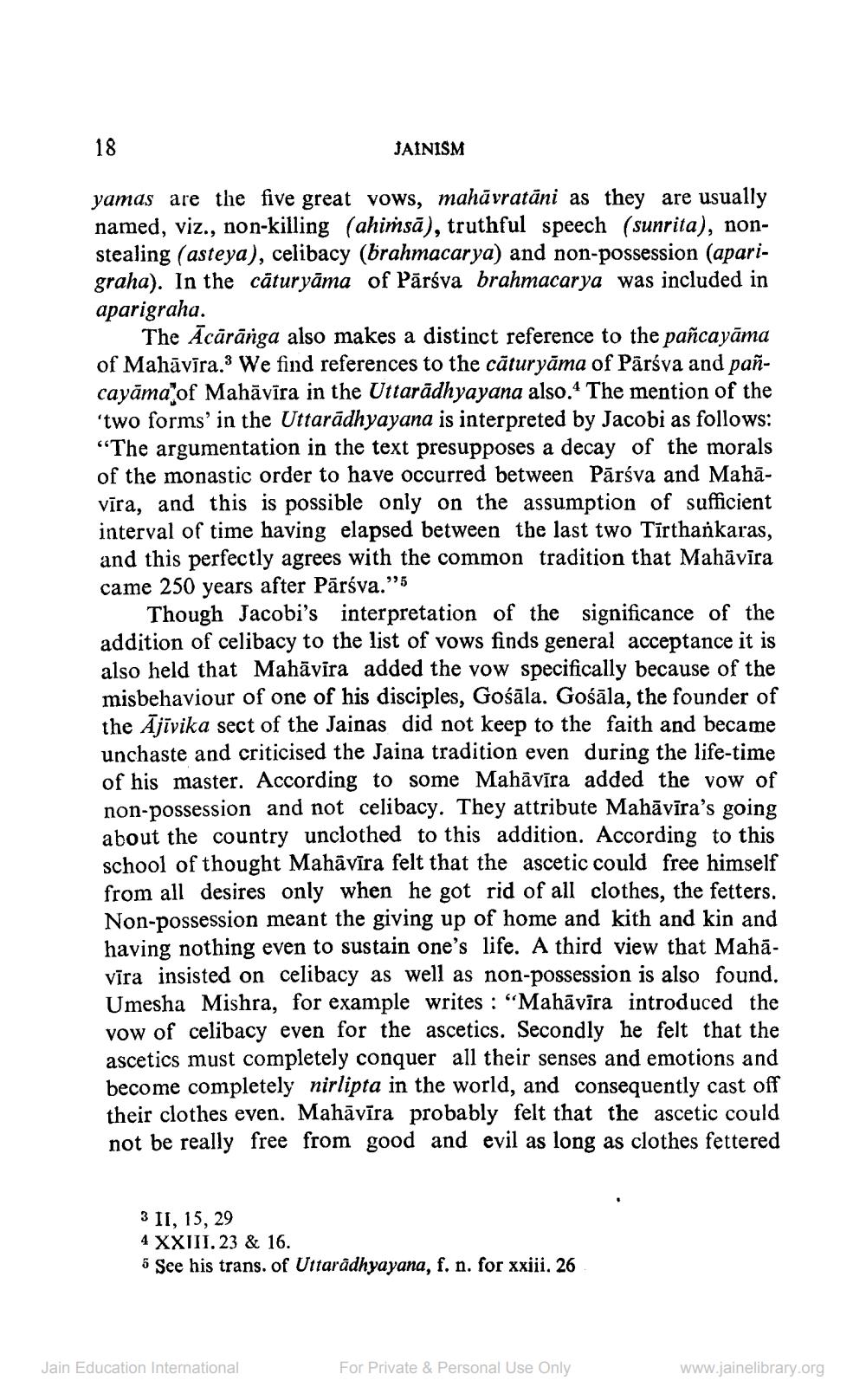________________
18
JAINISM
yamas are the five great vows, mahāvratāni as they are usually named, viz., non-killing (ahiṁsā), truthful speech (sunrita), nonstealing (asteya), celibacy (brahmacarya) and non-possession (aparigraha). In the caturyāma of Pārsva brahmacarya was included in aparigraha.
The Ācārārga also makes a distinct reference to the pañcayāma of Mahāvīra. We find references to the cãturyāma of Pārśva and pañcayāma of Mahāvīra in the Uttarādhyayana also. The mention of the 'two forms' in the Uttarādhyayana is interpreted by Jacobi as follows: “The argumentation in the text presupposes a decay of the morals of the monastic order to have occurred between Pārśva and Mahāvīra, and this is possible only on the assumption of sufficient interval of time having elapsed between the last two Tīrthankaras, and this perfectly agrees with the common tradition that Mahāvīra came 250 years after Pārsva.”'5
Though Jacobi's interpretation of the significance of the addition of celibacy to the list of vows finds general acceptance it is also held that Mahāvīra added the vow specifically because of the misbehaviour of one of his disciples, Gośāla. Gośāla, the founder of the Ājīvika sect of the Jainas did not keep to the faith and became unchaste and criticised the Jaina tradition even during the life-time of his master. According to some Mahāvīra added the vow of non-possession and not celibacy. They attribute Mahāvīra's going about the country unclothed to this addition. According to this school of thought Mahāvīra felt that the ascetic could free himself from all desires only when he got rid of all clothes, the fetters. Non-possession meant the giving up of home and kith and kin and having nothing even to sustain one's life. A third view that Mahāvīra insisted on celibacy as well as non-possession is also found. Umesha Mishra, for example writes : “Mahāvīra introduced the vow of celibacy even for the ascetics. Secondly he felt that the ascetics must completely conquer all their senses and emotions and become completely nirlipta in the world, and consequently cast off their clothes even. Mahāvīra probably felt that the ascetic could not be really free from good and evil as long as clothes fettered
3 II, 15, 29 4 XXIII. 23 & 16. 5 See his trans. of Uttaradhyayana, f. n. for xxiii. 26
Jain Education International
For Private & Personal Use Only
www.jainelibrary.org




